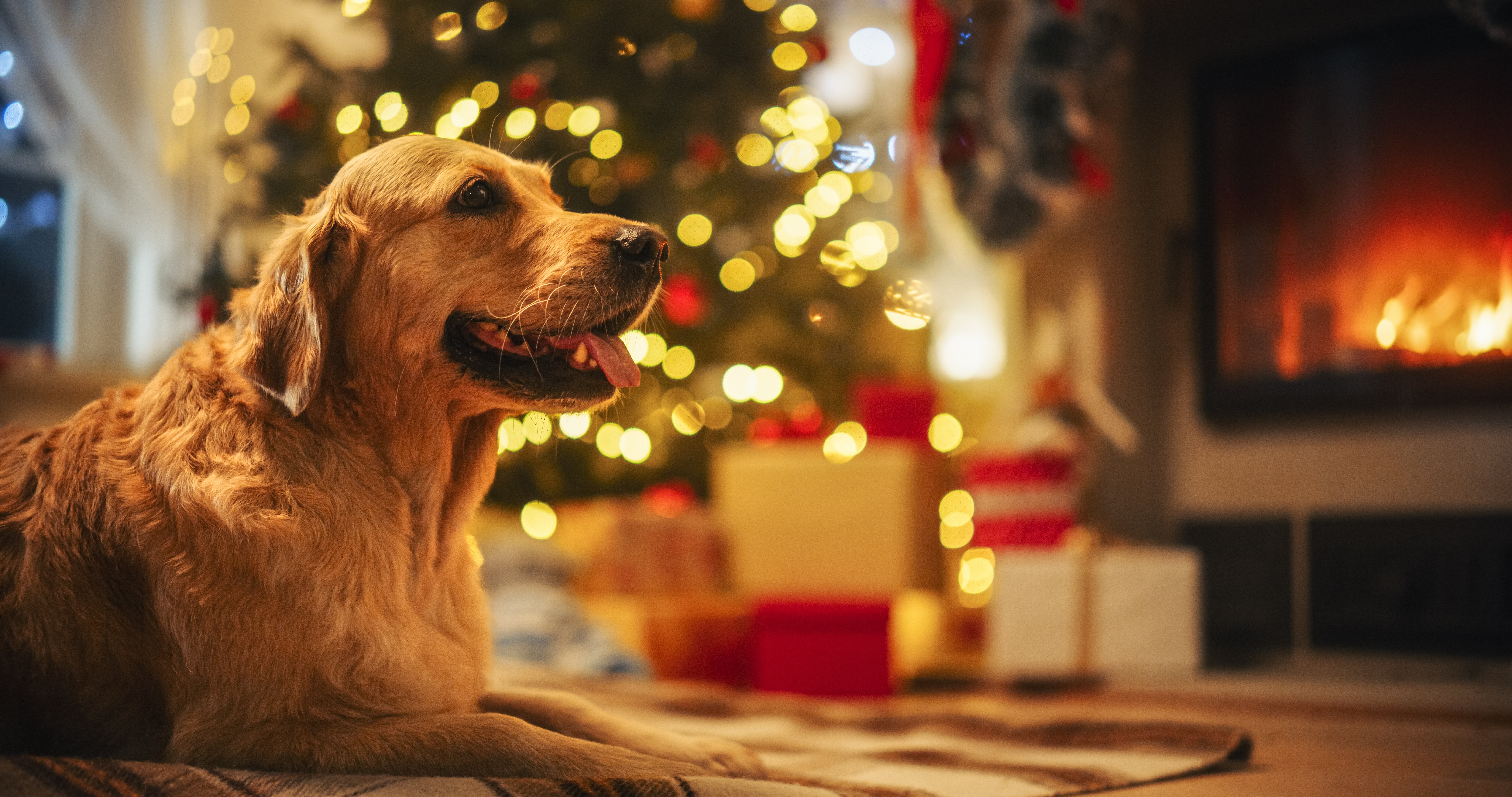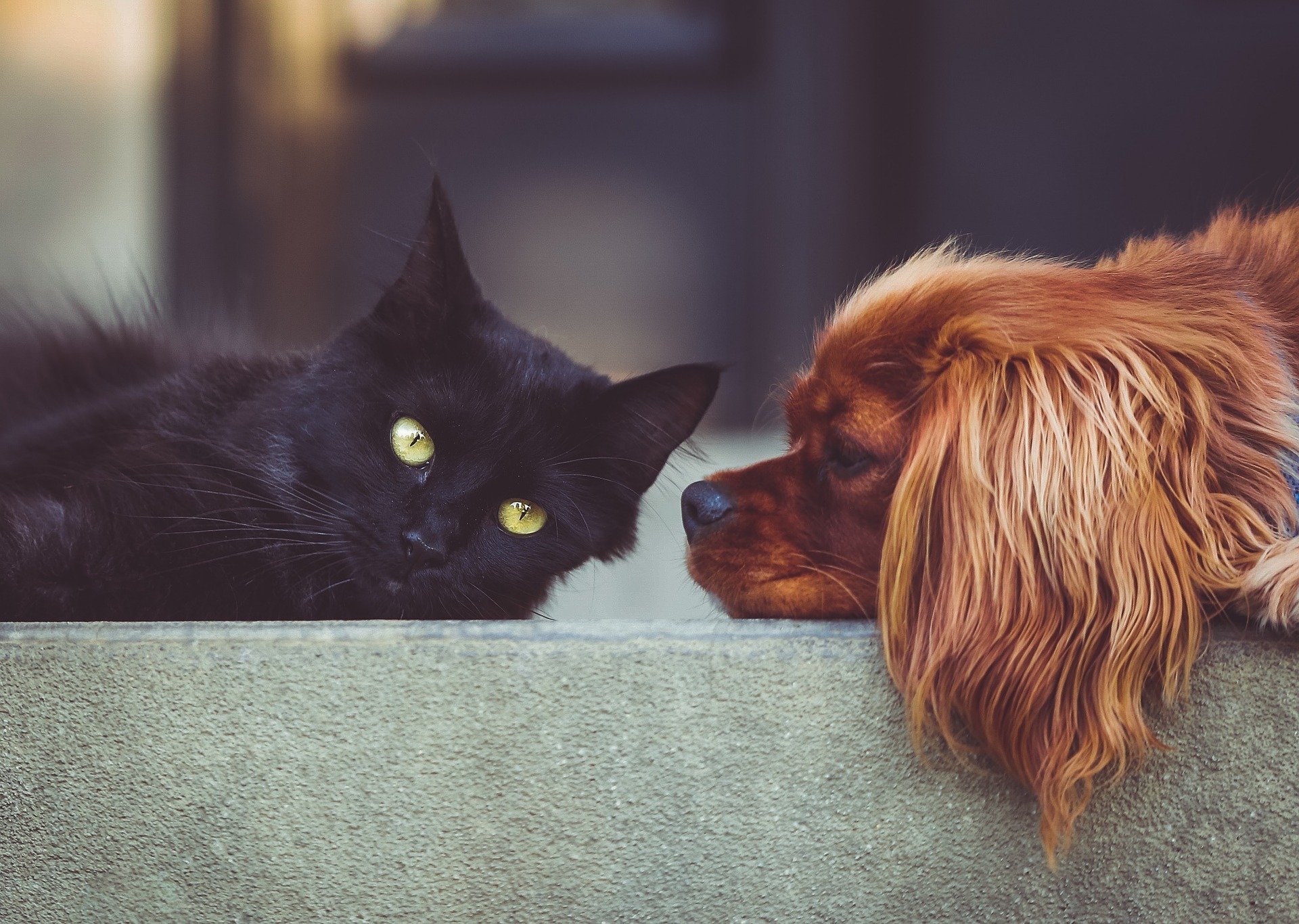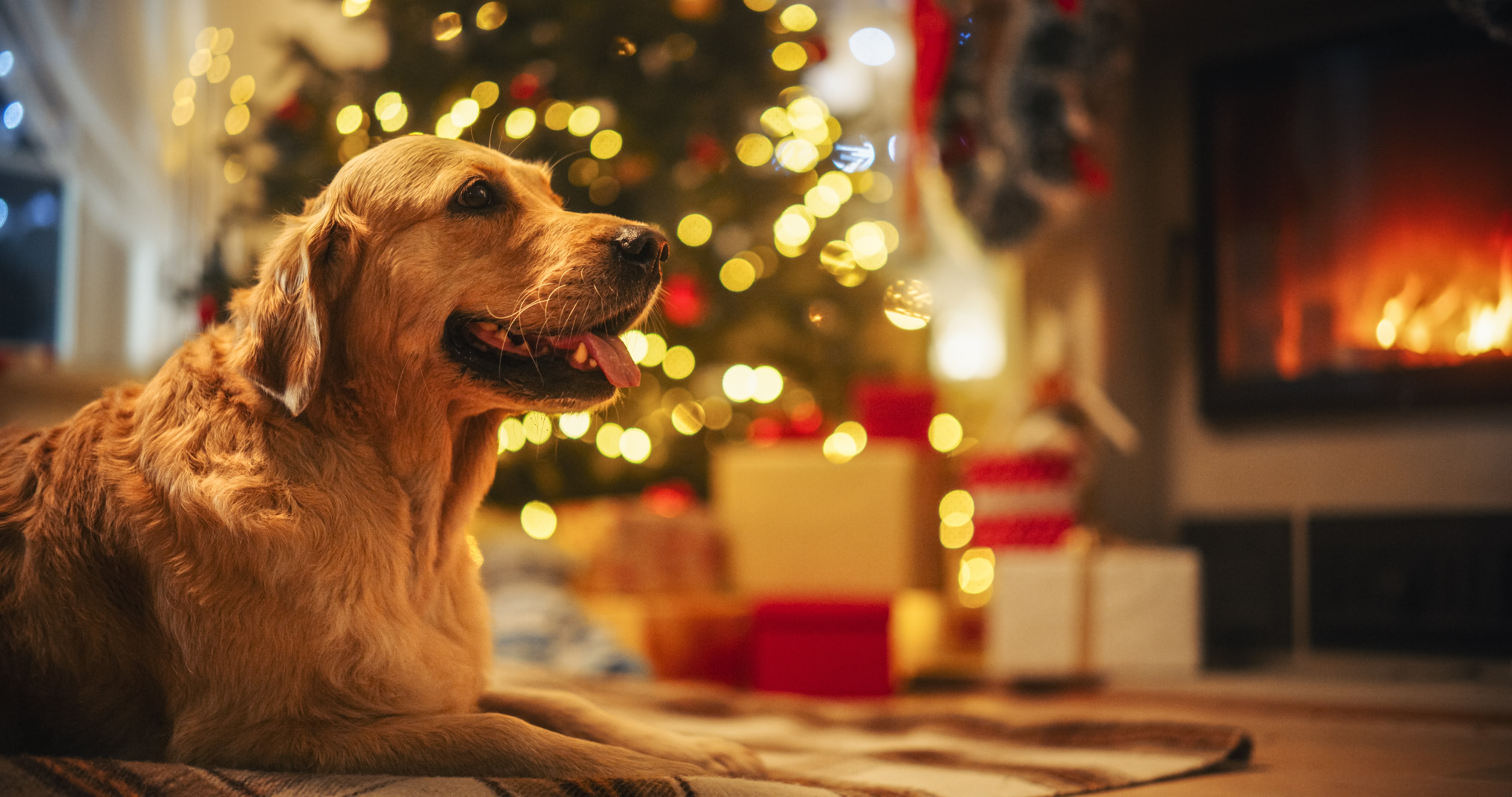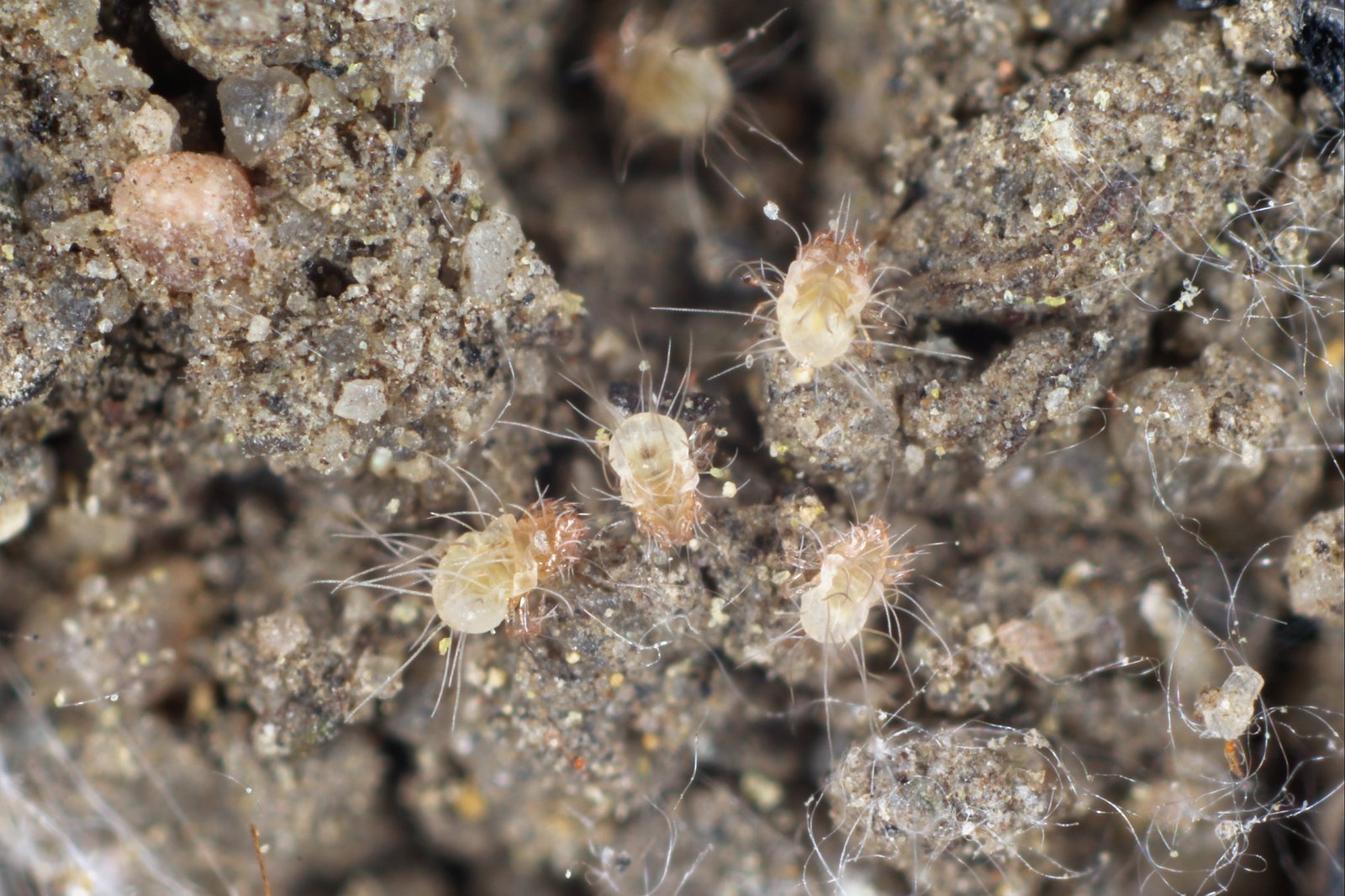The holiday season is a busy and fun-filled time for everyone in the household. But did you know it can also bring a lot of hidden dangers for our four-legged family members? This blog highlights some common seasonal items that you may not realize are a potential problem.
We hope these tips on foods and other products help you to keep your pet safe over the festive season and we wish you and your furry friends the best of holidays. Make the most out of them as we move through December!
1. No dried fruits
Grapes, raisins, sultanas, currants and any foods that contain them are all potentially toxic to dogs. If your trusted friend eats them, he or she could suffer from kidney failure which could lead to death. So, no mince pies, Christmas cake or Christmas pudding for your dog, and make sure you keep those beloved but hurtful dishes out of reach so your pets can’t indulge them when you are not looking!
2. Watch out with fatty foods
Fatty foods are not well tolerated by dogs and cats (and to be honest, not well with us either). These foods can give your pet a stomach ache which may lead to vomiting and diarrhea. Eventually, this can cause pancreatitis, which is a very serious condition where the pancreas has become inflamed. In the long run, feeding your pet foods that contain too many calories could also cause them to become overweight, which leads to many different health issues for them. So please don’t be tempted to share your festive dinner; if you do want to spoil them on the day why not plan ahead and give them a small healthy treat instead
3. Chocolate is dog and cat poison!
We hope it is widely known that chocolate is poisonous to both dogs and cats. It affects their heart and their respiratory and nervous systems. If enough is consumed it can even cause death. The poisonous ingredient in chocolate is called theobromine, and the darker the chocolate, the more theobromine it contains. There is likely much more chocolate around this time of year, so make sure it is stored away safely out of the reach of your pet. If your pet consumes even just a small amount of any kind of chocolate, please call your vet immediately for advice.
4. No artificial sweeteners
Xylitol is a common artificial sweetener that is often found in sweets as well as in sugar-free chewing gum, toothpaste, mouthwash, vitamin supplements, and other 'low sugar' or sugar-free products. Xylitol is poisonous to dogs, causing their blood sugar levels to plummet. It may also lead to liver damage. Even small amounts can be fatal, so early veterinary intervention is crucial. Signs of poisoning include vomiting, lethargy and convulsions. Make sure to keep all those Christmas sweets well out of the reach of your pets.
5. Alliums and dogs are not a good combination
Did you know that onions, garlic, leeks, shallots and chives, which all belong to the Allium group of plants, are poisonous to dogs? Symptoms of ingestion can include vomiting and diarrhea, but the main effect is damage to red blood cells, which carry oxygen around your dog’s body. This may result in anemia. Remember many festive foods like gravy, stuffing and sausages can also contain alliums.
6. Cooked bones are brittle bones
If you are having turkey or chicken for your festive dinner there may well be some bones left over. However, these or any cooked bones can be very dangerous and should never be given to pets. All types of bones when cooked become extremely brittle and can easily splinter or break into sharp shards. If consumed, cooked bones may cause choking, an obstruction or a perforation in the gut, which can be fatal. Not a risk you want to take!
7. Horse treats as leftovers?
You may already be aware that parsnips, apples, carrots, bananas and celery are all healthy, low-sugar horse treats when given in moderation. However, did you know that you should avoid foods that tend to produce intestinal gas or that belong to the 'nightshade' family? These include onions, potatoes, tomatoes, cabbage and Brussels sprouts. So, make sure you reserve them solely for your own dinner table!
8. Watch out with grit and antifreeze
The substance used to de-ice roads and pavements, known as grit or rock salt, contains sodium chloride (salt). If cats and dogs get it on their feet or body, it can cause irritation and they are likely to lick it off and ingest it. Consuming too much salt can result in a high blood sodium concentration and this can lead to vomiting, lethargy, convulsions and kidney damage. If they have been out and about in areas where salt has been spread, it is a good idea to wipe their paws and the fur on their legs and tummy. Also, be aware that it could be consumed by drinking puddles of melted snow. The same holds for antifreeze. As sweet as it may smell or taste, your pet should never ingest it. Watch out for spillage in your garage!
9. Fairy lights are beguiling to everyone
Dogs and cats are curious creatures and may try to chew fairy lights or their cables, which can injure their mouths, burn or even electrocute them. Make sure to keep cables out of sight and safely cover them so they are inaccessible. Fairy lights can also be a hazard to horses, as well as a potential fire risk around hay, straw and shavings. Make sure that any lights used around stables are made for outdoor use and that all of your lights are of the appropriate approved safety standard.
10. Not so festive foliage
Did you know that poinsettia, holly, ivy and mistletoe are all toxic to both cats and dogs? While kissing under the mistletoe may be romantic for us, it can be dangerous for our pets; eating it has been associated with vomiting, diarrhea, shock, breathing and heart problems and it can even result in their death.
11. Tinsel trouble
Tinsel is one of the decorations that cats like to play with most. They like to bat at it, pull it down, and especially to chew on it. Chewing on it can lead to a risk of choking or swallowing pieces. Tinsel can cause serious illness if it gets stuck in their intestines and, in some cases, this may even be fatal. Curious horses could also ingest tinsel strands, causing a gastric obstruction. So, make sure to keep tinsel out of your animal’s reach!
12. Candles can be knocked over
Candles can create a lovely festive atmosphere but especially if you have a bouncy or curious pet in the house, they can become a serious danger. Dogs and cats can burn paws, whiskers or even their noses on candles, and wagging tails could knock them over, causing a fire hazard. Please remember burning candles should never be left unattended and they should always be extinguished when you leave the room. If you are going to have candles alight, make sure they are out of reach of pets, children and dangling decorations that might catch fire if pulled down by a playful pet.
Bonus: always use common sense!
We have scared you enough by now. Of course, some of the information above is quite straightforward. However, it is always wise to ponder upon your pet December wisdom. We wish you the best of holidays and a great new year!
 UK
UK

 Danmark
Danmark
 Deutschland
Deutschland
 Global English
Global English
 España
España
 Suomi
Suomi
 France
France
 Bélgique (FR)
Bélgique (FR)
 Italia
Italia
 Nederland
Nederland
 Norge
Norge
 Sverige
Sverige



